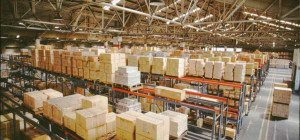Google is one of the biggest companies in the world. It’s worth more than one trillion dollars, and has become part of our everyday lives. When we search for something on the internet, we “Google” it. Unless you have an iPhone, you’re interacting with Google-made software every time you use your mobile phone handset. That’s because Google made Android, and Android powers your phone. When you use YouTube, you’re interacting with another Google platform. It’s impossible to avoid the company. They’re everywhere.
Despite the ubiquitous nature of the company, Google has always been intangible. You can see Google, but you can’t touch Google. They deal in the digital. They don’t make many physical products, and 99% of what they do is intangible. That’s about to change. This summer, thirteen years after the company was founded in California, USA, Google will open its first high street store. A location has been identified in New York City, and preparation work is already underway. It’s likely to be the first of many, with plans for Google stores in major cities all over the world. After more than two decades of hiding at the other end of the internet, Google is about to get in our faces.
At first glance, the move is counter-intuitive for an internet-based company. The internet has, after all, been blamed for the near-total destruction of traditional high street brands. Internet retail has killed off a countless number of formerly household retail names. We need only look to the casino industry for a compelling example of that. Casinos didn’t know what had hit them when the first online slots websites were launched. Seemingly overnight, customers who used to dress up and go to the casino once a week or once a month were able to play online slots from home without needing to pay entry fees or dress up for the privilege. Today, new online slots websites like Rose Slots New Zealand thrive while brick-and-mortar casinos struggle to pay the bills. The digital world is rapidly outstripping the physical world when it comes to sales and retail, yet Google has decided to step into the physical realm anyway.
In truth, this is probably a low-risk operation from Google’s perspective. The store will be located in the Chelsea neighbourhood of New York, very close to the company’s New York headquarters and within a pre-existing Google campus. If the store fails, they’ll still be able to make use of the space anyway. In form and function, it sounds like it will offer similar products and services to those you might expect to find in an Apple Store or an Amazon pickup location. All of Google’s branded hardware, from Pixel phones to notebooks, smart speakers and Fitbits, will be available to pick up and buy off the shelf. You can also order from the company’s website and pick your products up from the store if, for any reason, that would be more convenient than getting a product shipped to you at home. Nothing about this is revolutionary – but it’s very new for Google.
We’d be lying if we said Google hadn’t played around with this idea before. In the past – and more so in recent years – we’ve seen pop-up Google stores and booths in a handful of selected locations. However, the point is that those pop-up stores were always intended to be temporary. This new New York store is intended to be permanent. This will be the template for what might be an attempt by Google to match Apple for town and city centre visibility. The battle between the companies has never been more intense than it is right now, with the courtroom battle between Apple and Epic Games seen by some as a proxy war with Google backing Epic. Google’s chief executives believe that anything Apple can do, Google can do better. Apple probably isn’t worried by the idea of Google buying up city centre space and going head to head with its existing stores, but we suspect they’re not exactly thrilled about the news.
Apple might have many advantages in any such battle, with experience being one of them. The first Apple Store opened exactly twenty years ago in Tysons, Virginia, USA. By 2018, there were more than five hundred stores dotted all over the planet. It’s unusual to head into the centre of a major city – especially one in the USA and Europe – and not see an Apple Store. Inside those hundreds of stores, you’ll find a well-presented range of all of Apple’s most popular products and technicians available to help with repairs, advice, and troubleshooting. That appears to be something else that Google intends to copy from Apple’s template. Technical support and product advice will also be a key part of the Google Store offering.
Finding staff to work in the new store ought not to be a problem for Google. The campus upon which it’s based houses more than eleven thousand of the company’s employees, so the first-ever Google customer-facing team will probably be drawn from there. If the company follows the franchise model, it will likely offer specialised training to anybody who wants to open their own Google Store in their own town or city in the future. We suspect, though, that it’s more likely that Google will want to keep total ownership of any future stores it opens.
We might be speaking too soon about future stores. The opening of this first location will doubtless be an experiment, and the company might decide that there’s no merit in going any further. The famous Google Barges of a decade ago didn’t result in the creation of any permanent retail locations, and the talk of a site being opened in Chicago a few years ago turned out to be hot air. At least we can say with certainty that this New York store will definitely be happening. Where the idea goes from there remains to be seen. For as long as it lasts, though, Google is no longer an ethereal concept at the other end of a WiFi signal. It’s a high street brand at long last, and you might soon see the famous logo on a street near you.








